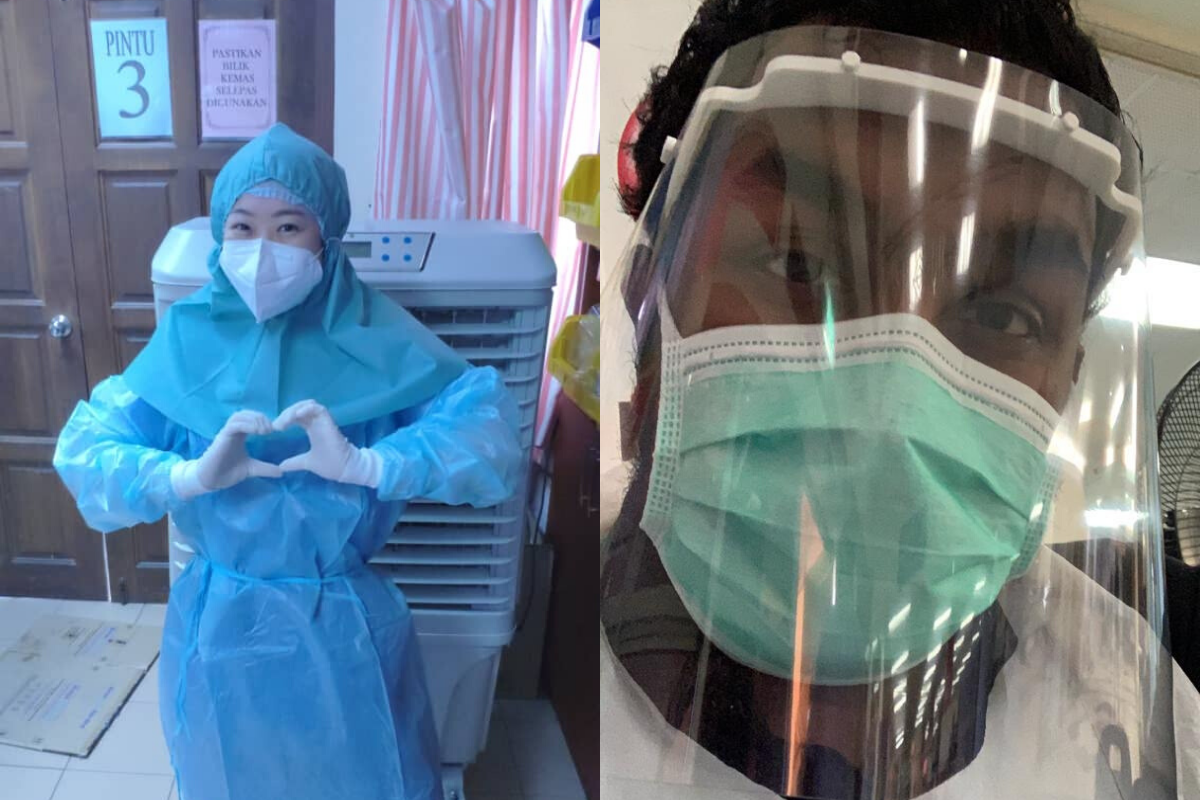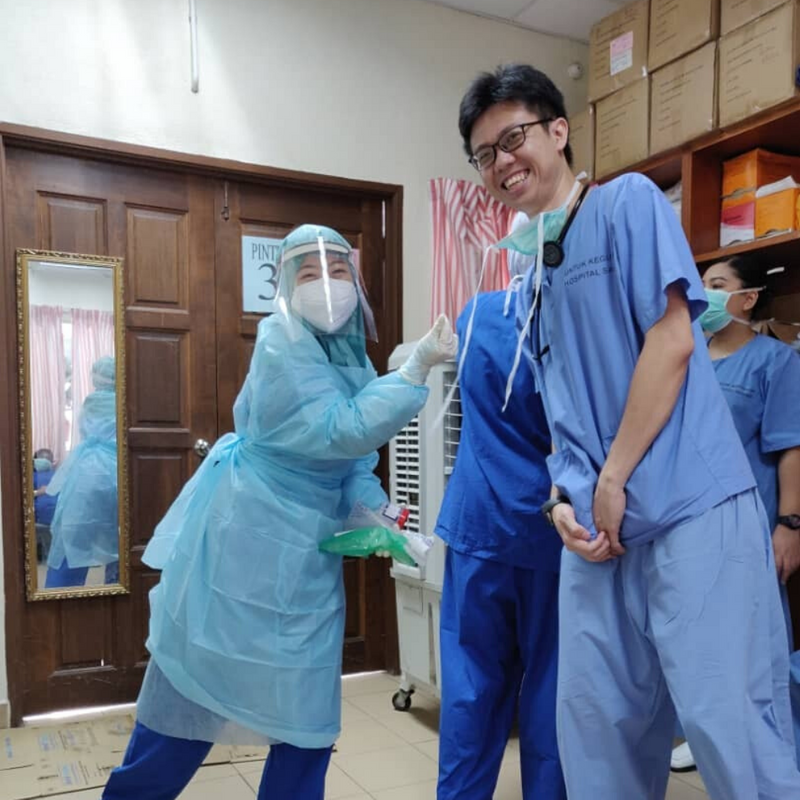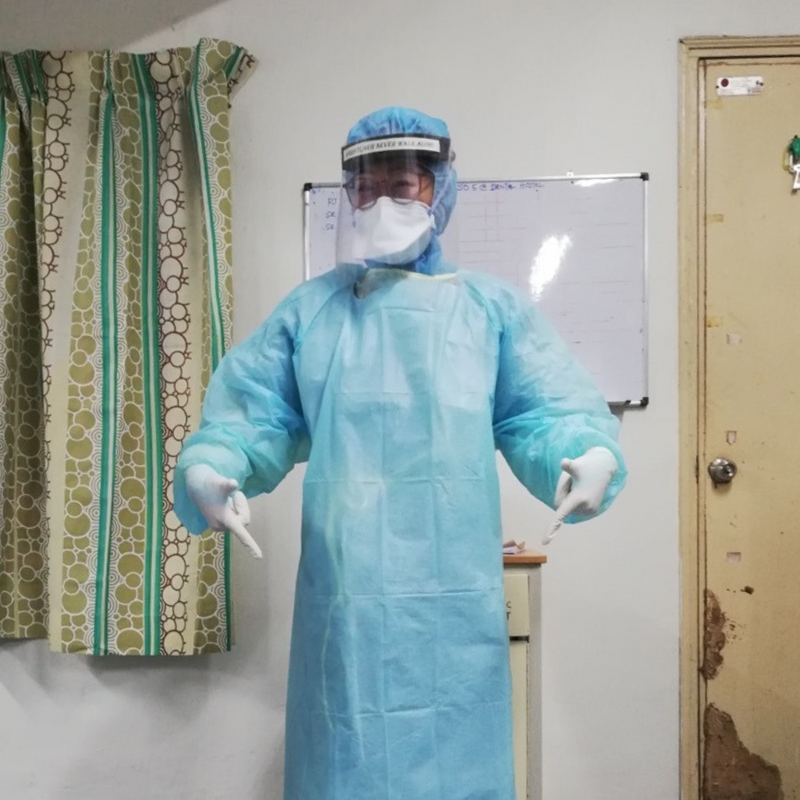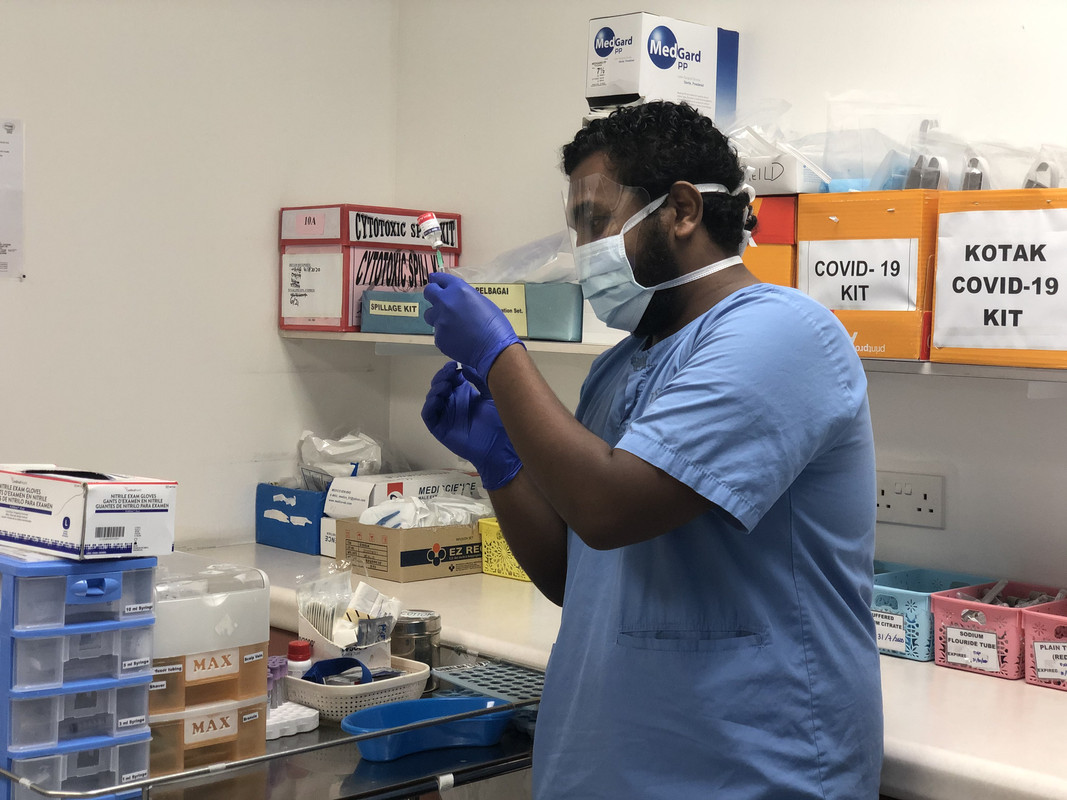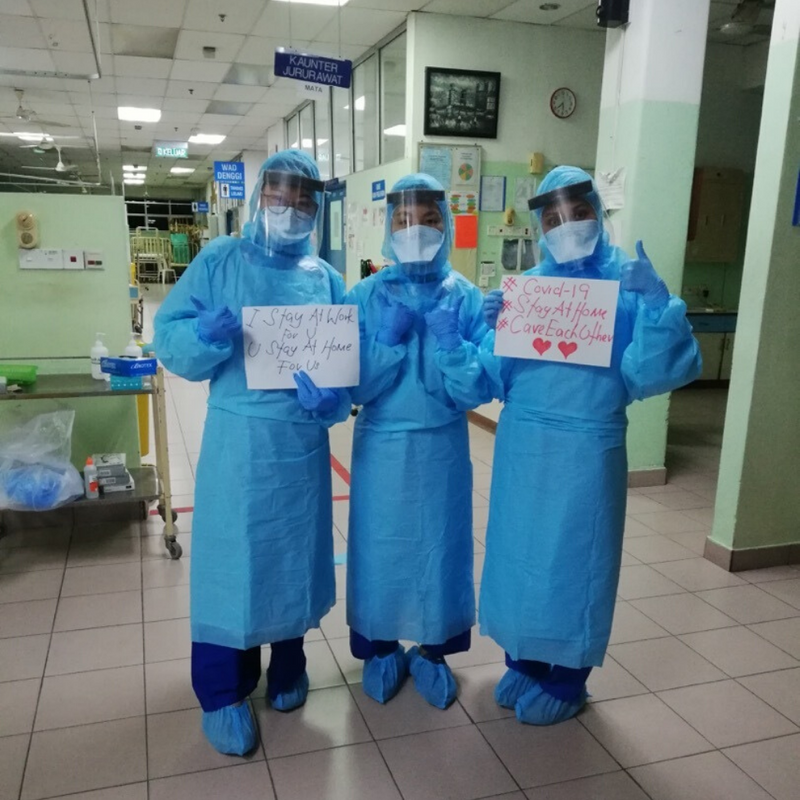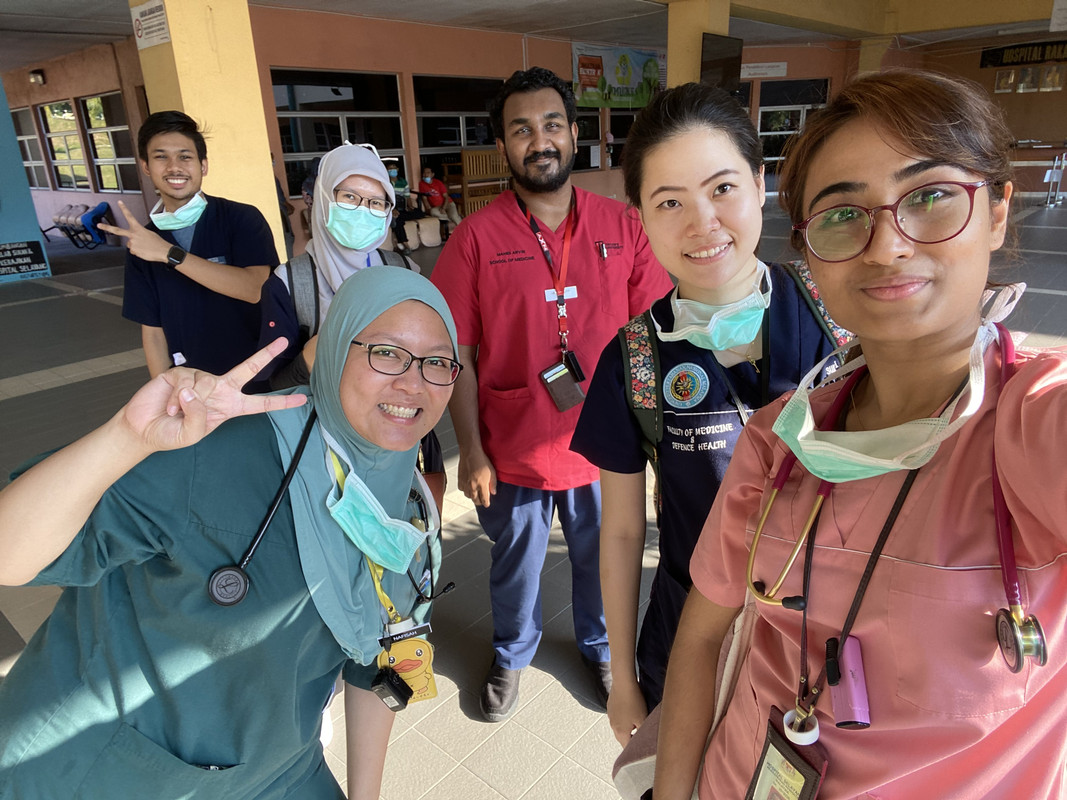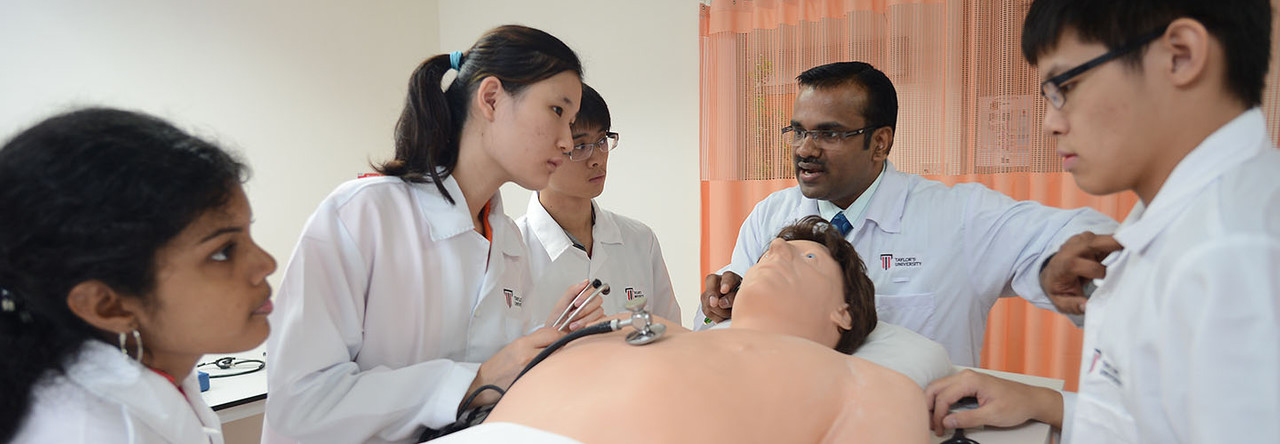Young Malaysian Doctors Share What It's Really Like To Fight COVID-19 On The Frontlines
"Doffing is the scariest. We are so afraid with the slightest movement, we may flick the virus all over and it'll land on us!"
"What if we don't take off the personal protective equipment (PPE) properly, and the virus accidentally lands on us?!"
Thoughts like these are common among doctors on COVID-19 duty.
Just one small mistake when putting on or taking off their PPE could mean them contracting the disease. Plus, these doctors have to work long 12-hour shifts and endure the intense heat under multiple layers of PPE.
Imagine having to cope with this kind of stress on a day-to-day basis! :'(
To find out what it's like to be fighting COVID-19 on the frontlines, we spoke to two Malaysian doctors
Dr Denise Zhang is a 29-year-old medical officer currently working in the surgical department at Penang General Hospital. An outgoing person, she loves the outdoors and even started a running club back in Taylor's School of Medicine. Sadly, the Movement Control Order (MCO) in the past few months has taken away her method of de-stressing.
Dr Mahes Arvin is also a 25-year-old graduate from Taylor's School of Medicine. He's been doing his housemanship for the past five months in Sungai Buloh Hospital. Being on the frontlines, things have been different at home because he has to self-quarantine and keep a distance from his family members.
1. What are your working hours like?
Dr Denise: "Healthcare workers have normal working hours like normal people. But then there are ward rounds, operating theatres, clinics, and who know when a patient will collapse. We always go to work waaaay early and never go home on time."
"Although I'm in the Surgical Department now, every department will take turns to send a few people to cover COVID duty. Our COVID shifts are 12-hour shifts."
Dr Mahes: "Our working hours definitely changed with COVID-19. We used to be working 67 hours a week with one off day during housemanship. However, during the COVID season, it dropped to 50 hours a week with two off days to reduce our exposure to the disease itself."
"That made us doctors feel safe as we know our exposure to cases were lesser. However, the work stress and mental implication is still there."
2. What are the biggest challenges you face during your COVID-19 shifts?
Dr Denise: "The scariest part is when we have to attend to suspected or confirmed COVID cases. We tend to double-triple check if we don the PPE properly, and quadruple-quintuple check our doffing (taking off)."
"Doffing is the scariest. We are so afraid with the slightest movement, we may flick the virus all over and it'll land on us!"
Dr Mahes: "As I mentioned, the mental stress is definitely there. I would be going home daily worried about what would happen if I brought the virus home. Would I infect my whole family? Their safety is my concern too."
"So throughout these few months, I've been self-quarantining in a different room from everyone else, with minimal face-to-face contact. That's how this pandemic has affected us doctors."
3. Do you think you were prepared for this coming right out of medical school?
Dr Denise: "I would not have known what a pandemic is if it wasn't for our public health classes. I would not have known how droplets are transmitted if it wasn't for those pathophysiology classes that we were forced to sit through. And I probably would not have known viral transmission will affect us if it wasn't because of the microbiology classes."
"All these subjects in med school are like Additional Maths - we may think that it will not help us in life, but it somehow does somewhere down the line."
Dr Mahes: "Studying at Taylor's with the affiliation of Hospital Sungai Buloh, I was exposed to cases such as HIV, hantavirus, malaria, and tuberculosis. So, it did prepare me to see a new strand of disease not known to mankind."
"I also roughly knew the protocols, steps, and precautions needed to be taken when dealing with airborne diseases. It kinda made my working life easier when my consultants asked, 'Hey, do you know donning and doffing of PPE?' and I would be so happy because I knew the basic protective equipment protocols."
4. What can the public do to help out during this time?
Dr Denise: "If everyone behaves, washes their hands, and practices social distancing, our work will be so much easier. Some of my married colleagues can't even go back to meet their babies and loved ones. It's tough, I know, I want to go dating also cannot!! But it's a two-way thing and we are all sacrificing."
Dr Mahes: "I know it's not easy living in this so-called 'new norm', but that's what we gotta do as a nation to help eradicate this disease. Simple things such as wearing masks, using hand sanitiser, and social distancing all does play a role to help us become a zero COVID nation. Remember, we doctors aren't the only frontliners around, you guys play a role too!"
All in all, we're so grateful to the frontliners who have been serving our nation bravely and tirelessly in the past few months!
Thank youuu all, you guys da real MVPs! <3
Dr Denise and Dr Mahes are both graduates of Taylor's School of Medicine, which offers a five-year programme with clinical training
Taylor's School of Medicine provides state-of-the-art facilities and equipment, along with a clinical school in Sungai Buloh to give students valuable hands-on training and experience. Besides that, you'll be learning from a healthy mix of local and international in-house specialists, experienced in various specialisations.
The five-year programme from Taylor's University, ranked the top private university in Malaysia and Southeast Asia in the 2021 QS World University Rankings, will gain you a Bachelor of Medicine, Bachelor of Surgery (MBBS). This certification is internationally recognised and fully accredited by the Malaysian Quality Agency (MQA).
Another cool thing about this programme is that you'll have the opportunity to broaden your knowledge through hands-on patient care in different countries via Taylor's Clinical Elective Module.
